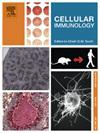在炎症性肠病中针对efferocytosis的炎症消退和组织修复的潜在治疗策略
IF 2.9
4区 医学
Q2 CELL BIOLOGY
引用次数: 0
摘要
Efferocytosis是凋亡细胞被吞噬细胞识别和清除的过程,是维持肠道免疫稳态和促进炎症消退的关键机制。炎症性肠病(IBD),包括克罗恩病(CD)和溃疡性结肠炎(UC),其特征是慢性肠道炎症,其中有缺陷的efferocytosis有助于ACs的积累,继发性坏死和持续的粘膜损伤。本文综述了efferocytosis的分子机制,并系统地研究了其在五种主要肠道吞噬细胞类型中的功能作用:巨噬细胞、树突状细胞(dc)、中性粒细胞、肠上皮细胞(IECs)和Paneth细胞(PCs)。特别强调的是在IBD发病机制中efferocytocapacity的失调以及在专业和非专业吞噬细胞中受损的凋亡细胞清除的后果。此外,我们评估了旨在恢复或增强efferocytosis的新兴治疗策略,包括巨噬细胞极化的调节、lc3相关的吞噬途径、纳米技术支持的递送系统和基于干细胞的干预。全面了解肠道微环境中细胞类型特异性的efferocytosis,为开发针对IBD的炎症解决疗法提供了有希望的方向。本文章由计算机程序翻译,如有差异,请以英文原文为准。
Potential therapeutic strategies targeting efferocytosis for inflammation resolution and tissue repair in inflammatory bowel disease
Efferocytosis, the process by which apoptotic cells (ACs) are recognized and cleared by phagocytes, is a critical mechanism in maintaining intestinal immune homeostasis and promoting the resolution of inflammation. Inflammatory bowel disease (IBD), encompassing Crohn's disease (CD) and ulcerative colitis (UC), is characterized by chronic intestinal inflammation, wherein defective efferocytosis contributes to the accumulation of ACs, secondary necrosis, and sustained mucosal damage. This review delineates the molecular mechanisms underlying efferocytosis and systematically examines its functional roles across five key intestinal phagocytic cell types: macrophages, dendritic cells (DCs), neutrophils, intestinal epithelial cells (IECs), and Paneth cells (PCs). Particular emphasis is placed on the dysregulation of efferocytosis capacity in IBD pathogenesis and the consequences of impaired apoptotic cell clearance in both professional and non-professional phagocytes. Furthermore, we evaluate emerging therapeutic strategies designed to restore or enhance efferocytosis, including modulation of macrophage polarization, LC3-associated phagocytosis pathways, nanotechnology-enabled delivery systems, and stem cell-based interventions. A comprehensive understanding of cell-type-specific efferocytosis in the intestinal microenvironment offers promising directions for the development of targeted, inflammation-resolving therapies for IBD.
求助全文
通过发布文献求助,成功后即可免费获取论文全文。
去求助
来源期刊

Cellular immunology
生物-免疫学
CiteScore
8.20
自引率
2.30%
发文量
102
审稿时长
30 days
期刊介绍:
Cellular Immunology publishes original investigations concerned with the immunological activities of cells in experimental or clinical situations. The scope of the journal encompasses the broad area of in vitro and in vivo studies of cellular immune responses. Purely clinical descriptive studies are not considered.
Research Areas include:
• Antigen receptor sites
• Autoimmunity
• Delayed-type hypersensitivity or cellular immunity
• Immunologic deficiency states and their reconstitution
• Immunologic surveillance and tumor immunity
• Immunomodulation
• Immunotherapy
• Lymphokines and cytokines
• Nonantibody immunity
• Parasite immunology
• Resistance to intracellular microbial and viral infection
• Thymus and lymphocyte immunobiology
• Transplantation immunology
• Tumor immunity.
 求助内容:
求助内容: 应助结果提醒方式:
应助结果提醒方式:


